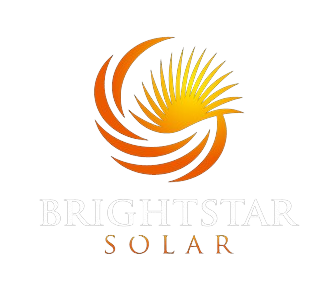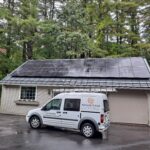What are SRECs?
Solar Renewable Energy Credits (SRECs) are a tradable commodity with a value that rises and falls with market conditions. SRECs represent all the positive environmental attributes of electricity generated from a solar electric system. Each time a solar system generates 1,000 kilowatt hours (1 megawatt hour) of electricity, a system may earn SRECs at the given market factor. Residents and business owners have been very happy with the program because Massachusetts SRECs are an additional revenue stream separate from electric bill savings.
How long will Massachusetts SRECs be available?
Massachusetts Solar Renewable Energy Credits (SRECs) will be available to customers through the end of 2017 or the start date of SMART, the next generation incentive program. In my experience, the launch date of these incentive programs comes later than expected so I do think there is a good chance that SRECs may be available for a limited time in 2018.
What program will replace Massachusetts SRECs?
The final program design of Solar Massachusetts Renewable Target (SMART) was announced January 31st, 2017. The state calls it a declining block program. The aim is the program will provide long-term certainty of income streams over 10 or 20 years and this will provide more continuity to the industry.
Will SMART be as good as SRECs?
That depends. I think it will be good for investors and utility-scale projects because it will provide certainty that an incentive program will be available long term. For those who want to put solar on their Massachusetts home, you will see a reduced benefit. A conservative estimate is that a residential solar customer may get an average of $0.169/kWh for SRECs over 10 years – higher values now, and values stepping down as you get to 10 years. The SMART program would be calculated as your compensation rate less the price you pay for electricity. A 10 kW facility qualified under Block 1 has a $0.30/kWh all-in compensation rate. Let’s say you currently pay the utility $0.18/kWh, then the incentive rate would be $0.12/kWh. Also, the SMART program will only be available to those who have energy supplied by an investor-owned utility, such as Eversource, National Grid, Unitil, and WMECO, and municipal light plants who volunteer to participate. I suspect that a low percentage of municipal light plants will participate so SRECs are even more important to those communities.
With Massachusetts SRECs, what changed from 2016 to 2017?
SREC factors. For Massachusetts systems under 25 kW, the SREC Factor was 1 in 2016. For systems under 25 kW that interconnect after January 8th, 2017, it would be a .8 SREC factor. New applications may be submitted for facilities over 25 kW at the following factors:
For more information on Market Sectors, please refer to the DOER SREC guidelines.
|
Market Sector |
SREC Factor |
|
A |
0.7 |
|
B |
0.6 |
|
C |
0.55 |
|
Managed Growth |
0.5 |
How many SRECS will my solar installation produce?
If your 9 kW system generates 10,000 kWh annually, you would earn (10 MWh x .8 SREC Factor) = 8 SRECs each year for 10 years.
When will I receive SREC income?
SRECs are paid quarterly. If we installed your system sometime between January and March, your first quarter would end March 31st. SRECs are minted one quarter and two weeks later and generally paid out two weeks after that. You would expect a check or direct deposit for Q1 SREC income the first week of August. Your next SREC payment would come the first week of November and so on.
How do I get in the SREC program?
The Massachusetts Department of Energy recommends that residential solar owners work with SREC aggregators, such as Knollwood Energy or SRECTrade, to achieve the highest market price. An experienced solar installer, such as Brightstar Solar, will administer and guide you through the process and the paperwork.
What’s my advice?
If you’re even remotely interested in solar for your Massachusetts home or business, I urge you it’s time to get the process started. Brightstar Solar, founded in 2009 and operated by husband and wife Jon and Mona Reese, can give you a free solar evaluation and walk you through the current incentives and navigate you through the installation process. Massachusetts solar incentives, permitting, and utility regulations can be tricky. It’s best to align yourself with a trusted and knowledgeable solar company, such as Brightstar Solar.







